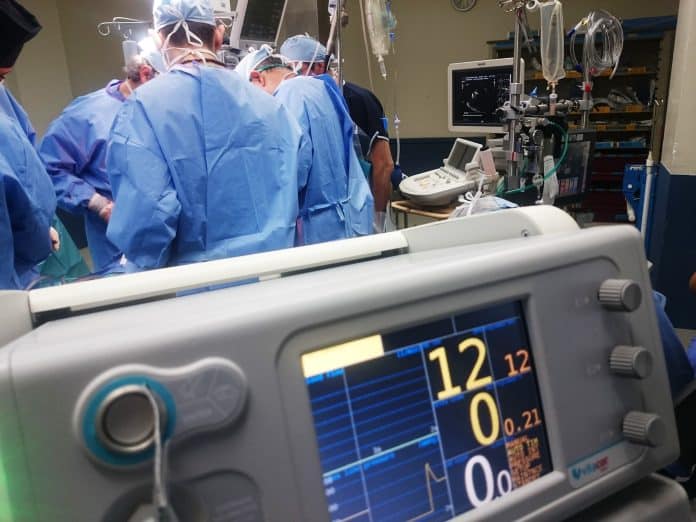Eeva is President of FinnEM, a nongovernmental organization representing acute care workers in Finland, which includes more than 1000 doctors, nurses and other emergency room personnel. She has worked in emergency departments for over 14 years, seeing first-hand how pervasive mental health stigma is.
“As frontline health workers, we like to think of ourselves as superwomen and supermen,” Eeva said. “In Finland, what we are lacking is the ‘how to take care of ourselves’ part of the work, which obviously affects the treatment of patients.”
She explained that due to the nature of the work, many acute care professionals have to distance themselves emotionally from patients in their care in order to do their jobs. “To some extent we do need to do that, as you cannot cry after every single case,” she noted. “But you cannot exclude your own self completely either. It’s not genuine, and you’re not going to be giving good care to families and taking care of their emotions.”

Eeva observed that when acute care professionals have no outlet to express or even reflect on these feelings, it can lead to the gradual encroachment of cynicism. Not only can this negatively affect the working environment, as she pointed out, cynicism is also “a really bad example to set for the medical students who follow you”.
Awareness and counselling
WHO/Europe, in its 2022 report “Health and care workforce in Europe: time to act”, identified several challenges facing the health and care workforce across the WHO European Region. In addition to shortages of health and care workers relative to increasing demand, these challenges include insufficient recruitment in key specialisms such as primary care, and difficulty retaining workers due to, among other factors, high stress and fatigue since COVID-19.
Indeed, when the COVID-19 pandemic hit, Eeva realized something needed to be done – quickly. “We were all overwhelmed with work, overwhelmed with new information and instructions every day, and obviously overwhelmed with the anxiety of the patients and their relatives, as well as our own relatives and families.”
FinnEM started by hiring mental health and social care professionals and launching a free online counselling service, FinnHELP, supported by funding from donors and the Government. Acute care workers can receive up to 5 sessions of counselling, which is delivered through secure video conferencing software. Users are free to talk about anything that is bothering them, whether it be issues with particular patients, their personal life or their workplace.
This service is backed up with awareness campaigns aimed specifically at acute care workers to destigmatize accepting help for their mental health.
“We have been campaigning since day 1,” Eeva said. One of the most prominent campaigns featured acute care professionals who had benefited from the service. “We had people talking, showing their faces, their workloads, their work environments.”
Eeva added, “I honestly believe that it counts – talking about it, giving voice to the issue and putting a face to it, making people aware that we are just like everybody else.”
Supporting mental health
WHO/Europe recognizes the increasing urgency of supporting the health workforce, including by protecting their mental health and well-being. On 22–23 March 2023, WHO/Europe and the Government of Romania are hosting a high-level regional meeting in Bucharest to agree on a set of concrete actions to protect, support and invest in health and care workers.
Supporting mental health and well-being in the workplace, especially for health workers, is also a key area of collaboration for the Pan-European Mental Health Coalition as part of efforts to advance universal health coverage and protect mental health across the life course.
Eeva is continuing to speak up about the importance of taking care of the mental health of health workers, which she also considers a patient safety issue. She joined the panel at the Pan-European Mental Health Coalition meeting in Türkiye to learn how to better integrate mental health support into work environments. “We definitely want to bring the knowledge from the mental health side of care into our work, campaigning, training and events.”
(WHO)






